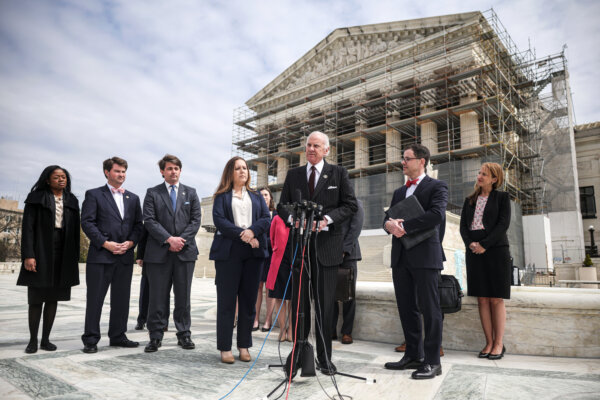![]() The U.S. Supreme Court on June 26 ruled that South Carolina may stop abortion provider Planned Parenthood from taking part in the state’s Medicaid program.
The U.S. Supreme Court on June 26 ruled that South Carolina may stop abortion provider Planned Parenthood from taking part in the state’s Medicaid program.
The decision reverses a federal appeals court decision that blocked South Carolina from excluding Planned Parenthood.
Medicaid is a joint federal–state program that offers health insurance coverage to low-income Americans.
The petitioner in the current case, Eunice Medina, is the director of the South Carolina Department of Health and Human Services.
Although the respondent, Planned Parenthood, is a major provider of abortion services, it also offers other services such as birth control and pregnancy testing.
The case goes back to July 2018, when South Carolina Gov. Henry McMaster signed Executive Order 2018-21, affirming that the state “has a strong culture and longstanding tradition of protecting and defending the life and liberty of unborn children.”
The executive order directed state health officials to “deem abortion clinics unqualified to provide family planning services.”
The order also required officials to terminate clinics’ enrollment agreements and deny their enrollment applications in the future.
The directive followed a state law that forbids the use of state funds to support abortions.
Federal courts of appeal disagree on how the provision should be interpreted.
The U.S. Court of Appeals for the Fourth Circuit heard the South Carolina case and, in March 2024, ruled against the state.
In 2018, Planned Parenthood South Atlantic and Julie Edwards, one of the organization’s Medicaid clients, filed a lawsuit in federal district court over South Carolina’s policy, according to the petition.
They argued that the state had violated clients’ right to select a “qualified provider” under federal law.
South Carolina countered by saying that the any-qualified-provider provision “does not unambiguously create a federal right enforceable by providers and individual patients under 42 U.S.C. [Section] 1983”—a federal law that allows individuals to sue the government for civil rights violations.
The district court upheld Edwards’s right to sue South Carolina over the state’s decision not to cover medical treatment that Planned Parenthood might provide to her.
The court also granted Edwards’s request for a preliminary injunction blocking the state policy and did not rule on whether Planned Parenthood was also entitled to the same kind of order.
The Fourth Circuit affirmed the decision, finding that Congress intended “to create an individual right enforceable under [Section] 1983 in the free-choice-of-provider provision” and that the provision “bars states from excluding providers for reasons unrelated to professional competency.”











